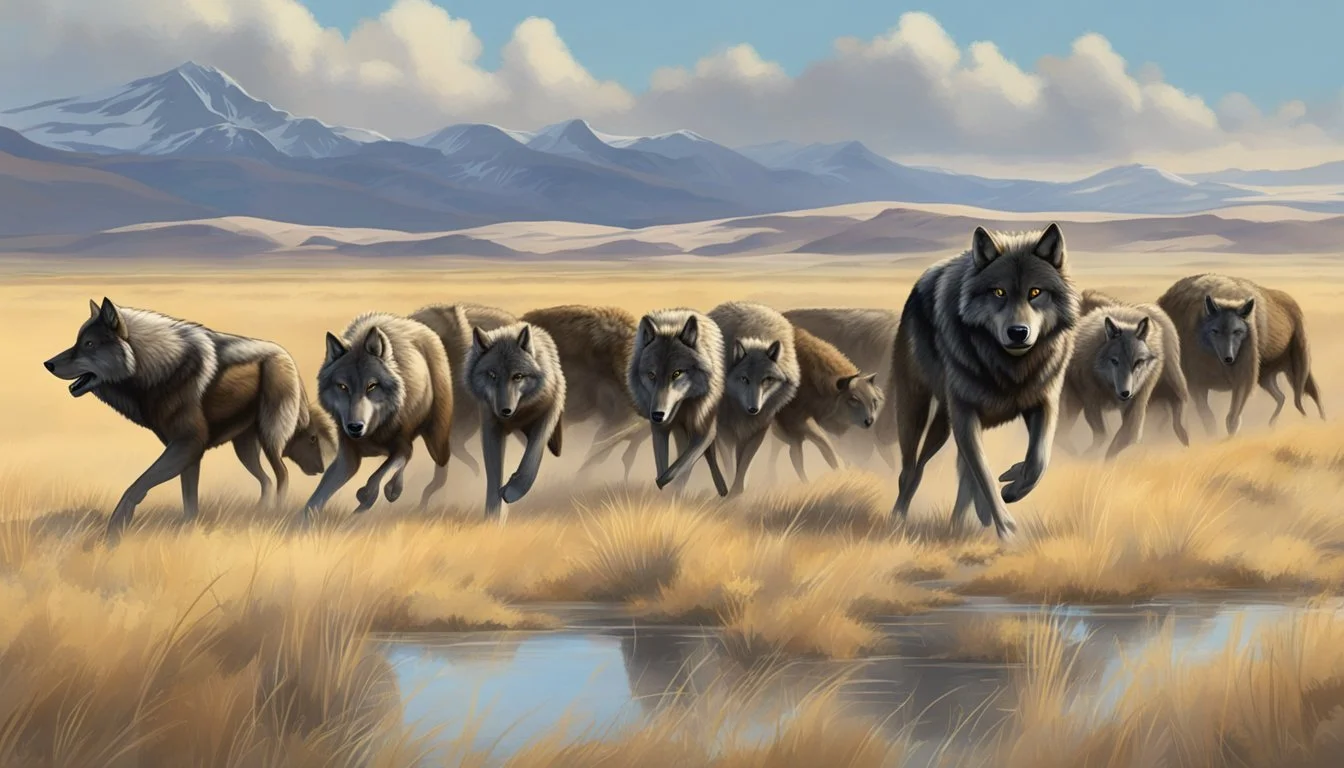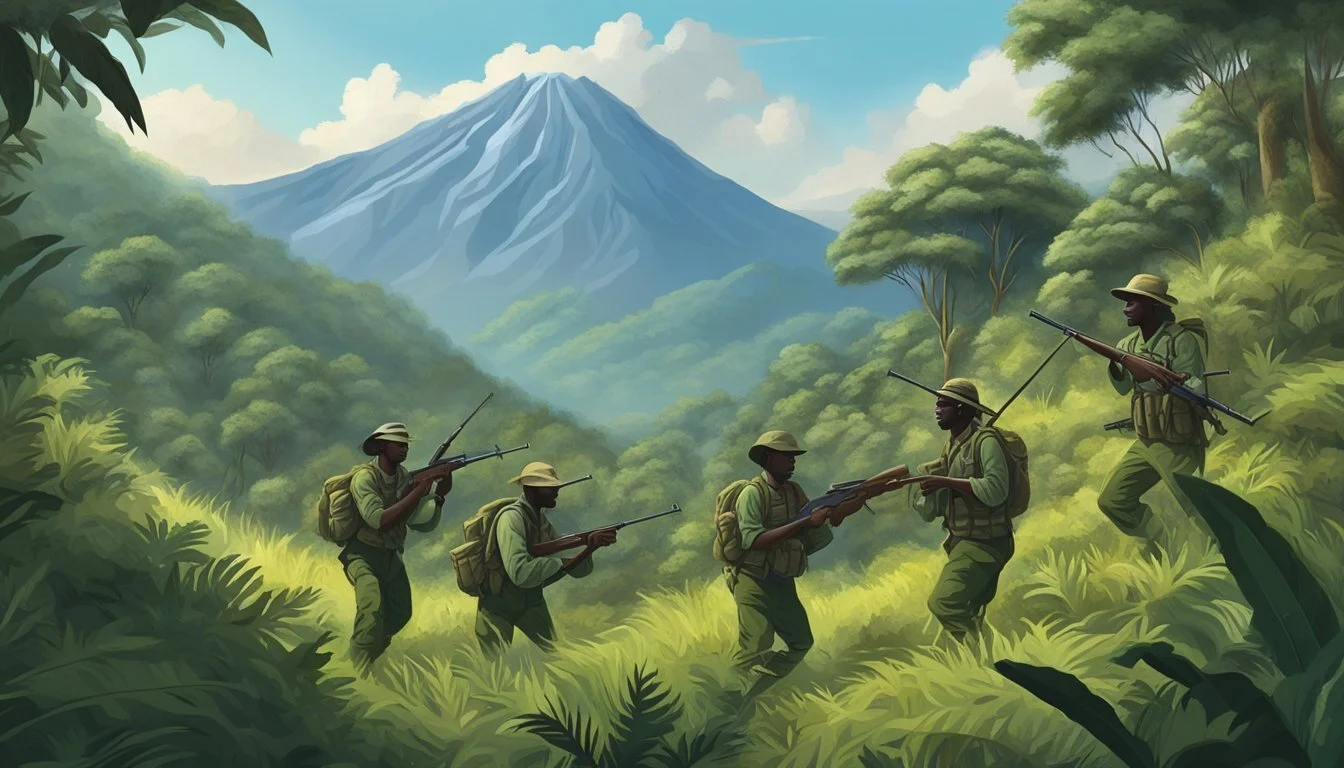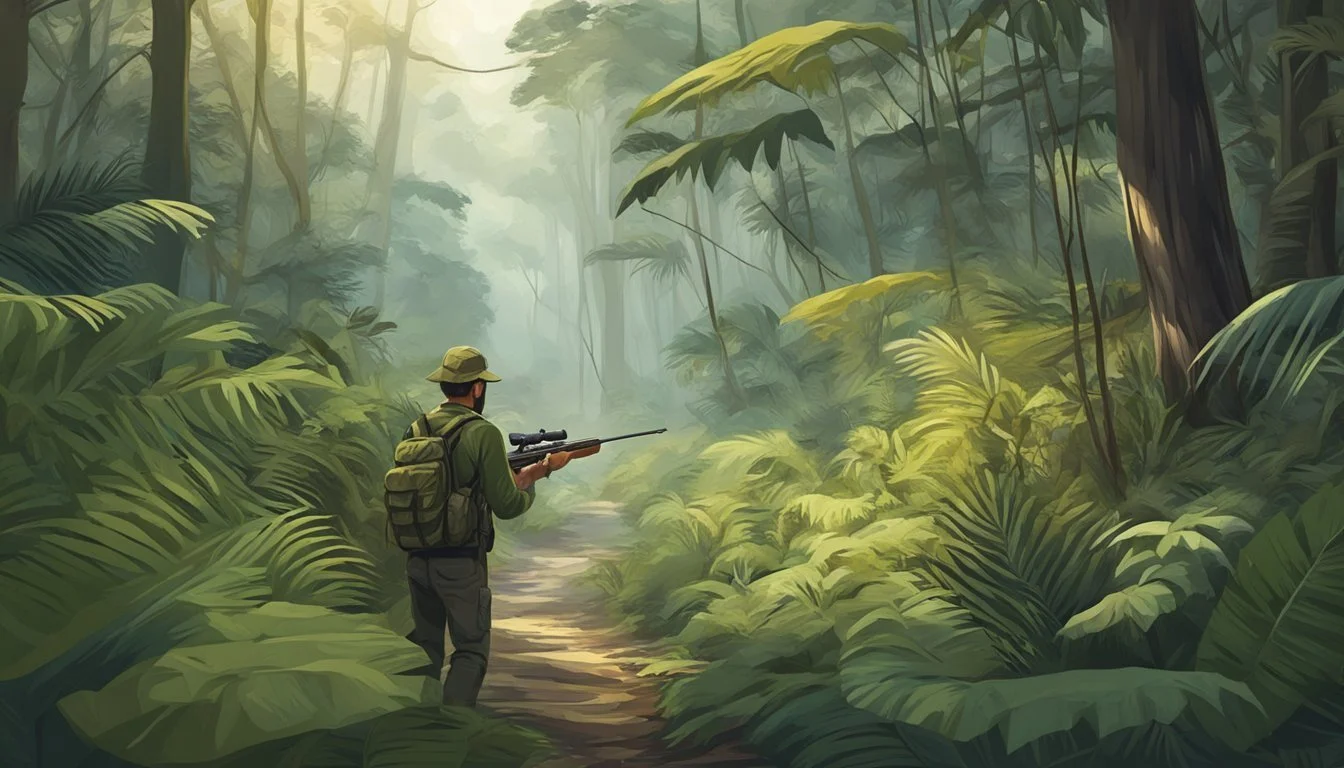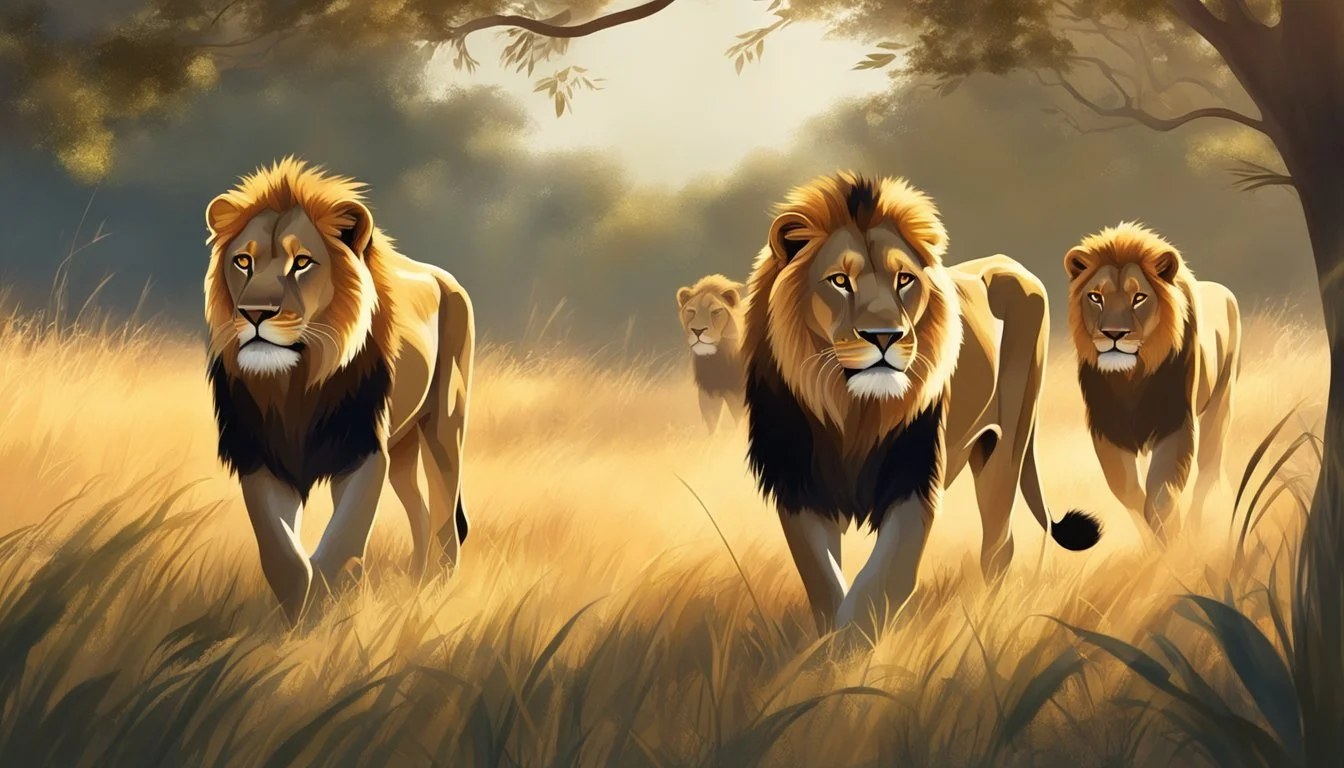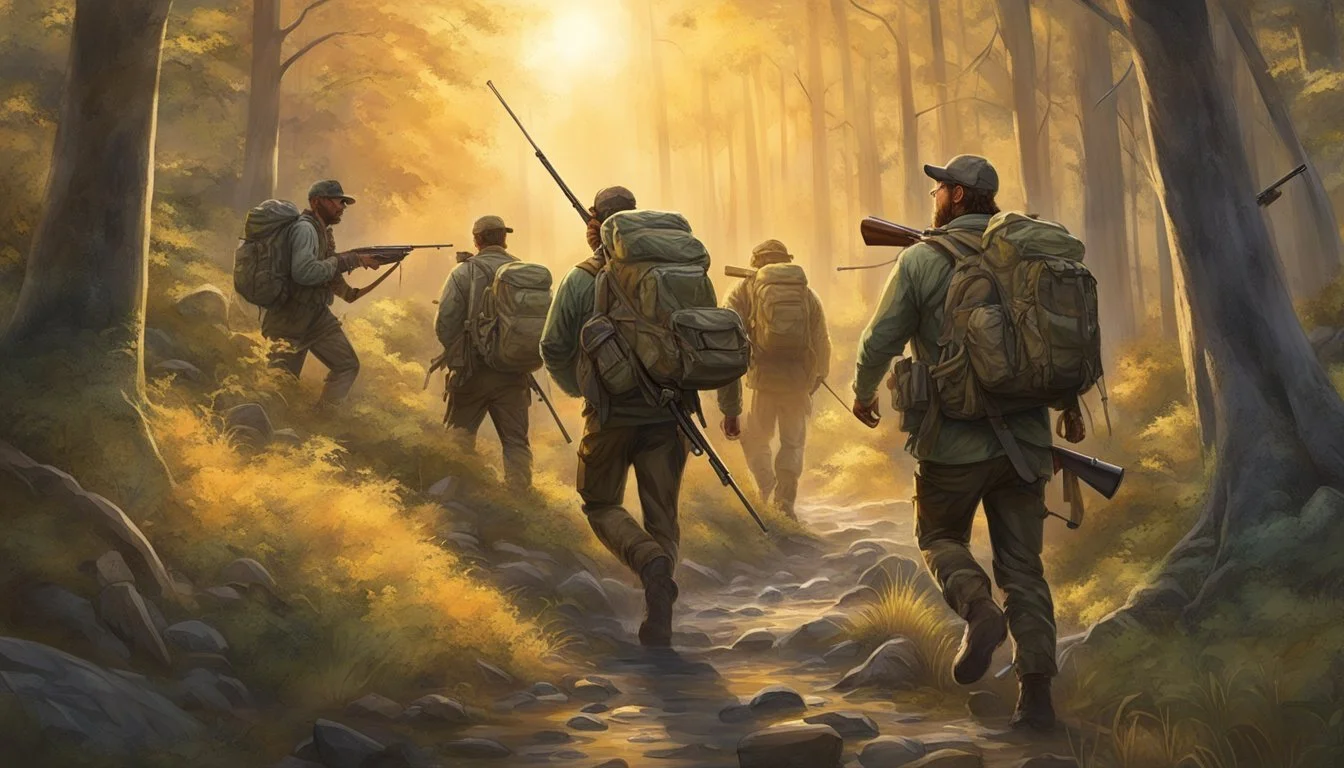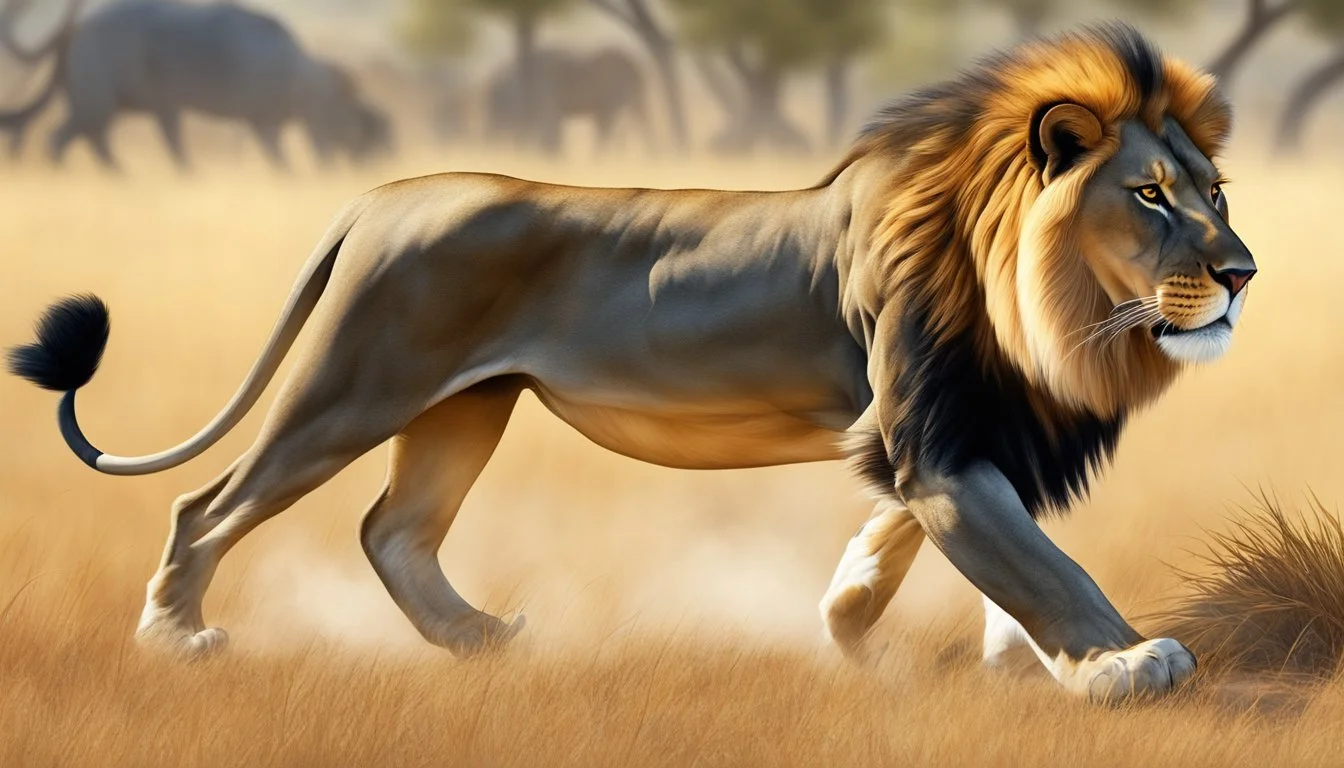5 Documentaries About the Most Dangerous Game to Hunt
Exploring High-Risk Pursuits
The concept of hunting the most dangerous game has captivated audiences for decades, inspiring numerous films and documentaries. This theme, which originated from Richard Connell's 1924 short story, explores the controversial idea of humans becoming the prey in a deadly hunt.
Several documentaries have delved into real-life cases and cultural phenomena related to human hunting, shedding light on this dark and intriguing subject. These films offer unique perspectives on survival, morality, and the extreme lengths some individuals will go to for thrills or power. By examining actual events and societal trends, these documentaries provide thought-provoking insights into the human psyche and the blurred lines between predator and prey.
1) The Ivory Game
The Ivory Game exposes the dark underbelly of global ivory trafficking. This 2016 documentary follows undercover filmmakers as they infiltrate the illegal ivory trade across Africa and Asia.
Directed by Richard Ladkani and Kief Davidson, the film offers a gripping look at the poaching crisis threatening African elephants with extinction. It shines a light on the complex international supply chain fueling ivory demand.
Viewers join intelligence operatives, activists, and rangers on dangerous missions to combat poachers and traffickers. The film highlights figures like Elisifa Ngowi, who leads anti-poaching efforts in Tanzania.
The documentary also examines the role of Chinese demand in driving the ivory market. It explores how shifting attitudes in China could help turn the tide against poaching.
With stunning cinematography and high-stakes action, The Ivory Game plays out like a thriller while tackling a pressing conservation issue. It serves as an urgent call to protect elephants from the ivory trade.
More information on The Ivory Game
2) Virunga
Virunga is a gripping 2014 documentary that sheds light on the dangerous efforts to protect Africa's oldest national park. Set in the Democratic Republic of Congo, the film follows park rangers as they risk their lives to safeguard endangered mountain gorillas.
The documentary exposes the complex threats facing Virunga National Park, including poaching, armed conflict, and oil exploration. Director Orlando von Einsiedel captures intense moments as rangers confront rebel forces and investigate illegal activities within the park's borders.
Virunga's cinematography showcases the park's stunning biodiversity while also revealing the harsh realities of conservation work in a conflict zone. The film features interviews with dedicated park staff, local communities, and even undercover footage of questionable corporate practices.
Nominated for an Academy Award for Best Documentary Feature, Virunga brings attention to the courageous individuals fighting to preserve one of Earth's most precious ecosystems. The film serves as a call to action for environmental protection and responsible resource management.
More information about Virunga
3) Trophy
Trophy is a thought-provoking documentary that explores the complex world of big-game hunting and wildlife conservation in Africa. Directors Shaul Schwarz and Christina Clusiau present a nuanced look at this controversial subject.
The film follows several key figures, including a Texas sheep breeder who dreams of hunting the "Big Five" African game animals and a South African rhino breeder who argues that legalizing the rhino horn trade could help save the species.
Trophy examines the economic and ethical complexities surrounding trophy hunting and its potential role in conservation efforts. It presents arguments from both hunters and anti-hunting activists without taking an explicit stance.
Through stunning cinematography, the documentary captures the beauty of African wildlife and the intensity of big-game hunts. It raises important questions about the future of endangered species and the most effective ways to protect them.
Trophy challenges viewers to consider multiple perspectives on this divisive issue, encouraging critical thinking rather than providing easy answers.
More information about Trophy on IMDb
4) Blood Lions
Blood Lions is a powerful documentary that exposes the dark world of canned lion hunting in South Africa. Released in 2015, the film follows two main storylines.
One thread tracks an American hunter named Swazey as he books and participates in a canned lion hunt. The other reveals the brutal realities of predator breeding facilities.
The documentary sheds light on an industry where lions are bred in captivity for the sole purpose of being hunted. It challenges the claims made by those who profit from these practices.
Blood Lions aims to educate viewers about the ethical issues surrounding canned hunting. The film sparked a global campaign to end the exploitation of lions for tourism and hunting.
Through compelling footage and interviews, the documentary exposes how these practices threaten wild lion populations. It calls for changes in legislation and public awareness to protect these majestic animals.
More information about Blood Lions
5) The End of the Game
"The End of the Game" is a 2017 documentary that explores the complex world of big game hunting. The film follows vegan filmmaker David Graham Scott as he accompanies Guy Wallace, an aging hunter, on his final expedition to Africa.
The documentary offers a unique perspective by presenting both sides of the hunting debate. It examines the motivations behind big game hunting and its impact on wildlife conservation.
Scott's journey with Wallace provides an intimate look at the hunter's mindset. The film challenges viewers to consider the ethical implications of hunting endangered species.
"The End of the Game" stands out for its balanced approach to a controversial topic. It presents facts without judgment, allowing audiences to form their own opinions on big game hunting.
The documentary's thoughtful exploration of human-animal relationships makes it a valuable addition to discussions about conservation and ethics in hunting.
More information about "The End of the Game"
Understanding The Appeal of Dangerous Game Hunting
Dangerous game hunting attracts a subset of hunters seeking intense challenges and thrills. This pursuit combines physical endurance, mental fortitude, and expert marksmanship in high-stakes encounters with formidable animals.
Historical Context and Evolution
Dangerous game hunting traces its roots to ancient times when humans hunted large predators for survival and protection. In the 19th and early 20th centuries, it gained popularity among wealthy adventurers and colonial figures in Africa and Asia.
Notable hunters like Theodore Roosevelt and Ernest Hemingway romanticized the practice through their writings. This fueled public fascination with dangerous game hunting as the ultimate test of courage and skill.
Over time, the focus shifted from pure trophy hunting to conservation-minded approaches. Modern hunters often participate in carefully managed hunts that support local economies and fund wildlife protection efforts.
Ethical Considerations
Dangerous game hunting remains controversial, with valid arguments on both sides. Proponents argue it provides crucial funding for conservation and anti-poaching efforts in developing countries. They claim it helps manage animal populations and protects human communities from dangerous wildlife.
Critics contend the practice is cruel and unnecessary, potentially harming endangered species. They question the ethics of killing animals for sport, especially intelligent and emotionally complex creatures like elephants.
Responsible hunters emphasize adhering to strict regulations, using appropriate weapons, and ensuring clean, quick kills. Many also support additional conservation measures beyond their hunting activities.
Cultural Perspectives in Documentaries
Documentaries exploring "the most dangerous game" often reflect diverse cultural viewpoints on hunting and human nature. These films shed light on societal attitudes towards violence, survival, and the ethical boundaries of sport.
Portrayal of Hunters and Prey
Documentaries frequently depict hunters as wealthy elites seeking thrills beyond conventional sports. They're shown as morally ambiguous figures, driven by a desire to test their skills against human prey. The hunted are often portrayed as underdogs or victims of circumstance.
Some films draw parallels between human hunting and historical oppression or class struggles. This framing adds layers of social commentary to the narrative.
Documentaries may explore the psychological motivations of both hunters and prey. They examine how different cultures view concepts of power, dominance, and survival instincts.
Impact on Conservation Narratives
These documentaries sometimes touch on conservation issues, drawing connections between human hunting and wildlife preservation. They may highlight how treating humans as game mirrors attitudes towards endangered species.
Some films explore indigenous perspectives on hunting, contrasting them with modern "sport" hunting. This juxtaposition raises questions about sustainability and respect for life.
Documentaries often address the environmental impact of extreme hunting practices. They may discuss habitat destruction or the ecological consequences of treating landscapes as private hunting grounds.
These films can influence public opinion on conservation efforts and animal rights. By humanizing the "prey," they encourage viewers to reconsider their stance on hunting and wildlife management.

